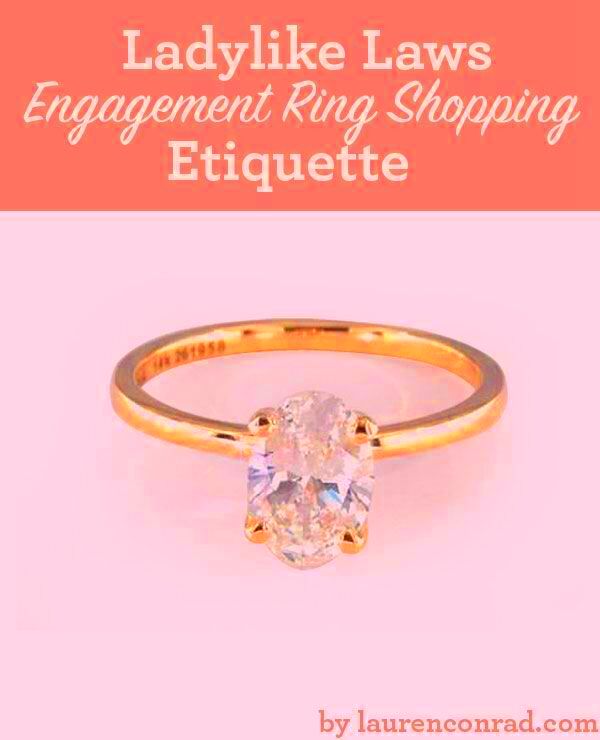Engagement Ring Laws in Florida Explained
Engagement ring laws in Florida can be confusing, especially when a relationship ends before the wedding. In general, Florida law views engagement rings as conditional gifts, meaning the ownership of the ring depends on whether or not the marriage takes place. These laws address what happens to the ring if the engagement is called off, as well as the legal factors that influence who gets to keep it.
The outcome largely depends on whether the engagement ends due to mutual agreement or if one party is at fault. Understanding how Florida courts handle these cases can help prevent legal disputes.
Who Owns the Ring After a Broken Engagement?

In Florida, the ownership of an engagement ring after a broken engagement depends on several factors. As an engagement ring is considered a conditional gift, it is usually given with the understanding that the marriage will take place. If the engagement is broken, the person who gave the ring (the donor) typically has the right to ask for it back.
However, the situation may change based on who ended the engagement and why:
- If the donor ends the engagement: In most cases, if the person who gave the ring calls off the engagement, they may forfeit the right to ask for the ring’s return.
- If the recipient ends the engagement: If the person who received the ring breaks off the engagement, Florida law usually supports the return of the ring to the donor.
- Mutual agreement: When both parties agree to end the engagement, the ring is often returned to the donor, but this can vary depending on the specific situation.
Ultimately, the court may consider factors such as fault, intent, and fairness when deciding who gets to keep the ring.
Fault-Based vs. No-Fault Engagement Termination
The reason behind a broken engagement can impact who keeps the ring in Florida. Courts may distinguish between fault-based and no-fault engagement terminations when deciding the outcome:
- Fault-based termination: If one party is responsible for ending the engagement due to their behavior (such as infidelity or breach of trust), they may lose their right to the ring. In such cases, the courts may favor the party who was not at fault.
- No-fault termination: If the engagement is called off by mutual agreement or for reasons that do not place blame on one person, the ring is typically returned to the donor. In no-fault cases, the courts may be more likely to enforce the return of the ring as it was given with the expectation of marriage.
Florida courts look at the circumstances leading to the broken engagement to determine whether fault plays a role in deciding the rightful owner of the engagement ring. This distinction is important as it can influence the outcome of legal disputes over ring ownership.
Does Florida Consider an Engagement Ring a Gift?
In Florida, engagement rings are generally viewed as gifts, but with a twist. They are considered conditional gifts, meaning they are given with the expectation that a marriage will take place. If the marriage does not occur, the legal standing of the ring becomes a topic of discussion. Understanding how Florida treats these gifts can help clarify ownership issues if the engagement ends.
Here are some key points regarding engagement rings as gifts in Florida:
- Conditional nature: The primary aspect of an engagement ring as a gift is its conditional nature. If the marriage does not happen, the person who gave the ring usually has the right to reclaim it.
- Intent of the giver: The intent behind giving the ring matters. If it was meant as a permanent gift, the owner may argue that it should remain with the recipient, especially if the engagement was broken by mutual agreement.
- State laws: Florida’s legal framework supports the idea that if the marriage does not take place, the ring should be returned to the giver. Courts may enforce this view during disputes.
In summary, while engagement rings are gifts, their conditional status can complicate ownership if the relationship does not progress to marriage.
Legal Disputes Over Engagement Rings
Legal disputes surrounding engagement rings often arise when a couple breaks off their engagement. The emotional weight tied to these rings, coupled with the legal implications, can lead to contentious battles. Understanding common causes of these disputes can help individuals navigate the situation better.
Some common issues include:
- Ownership claims: Disputes often arise over who has the legal right to keep the ring. This typically involves arguments regarding the conditions under which the ring was given.
- Fault determination: Questions of who was responsible for the broken engagement can play a significant role. If one party is deemed at fault, they may lose their claim to the ring.
- Emotional value: Engagement rings often carry sentimental value, leading to disagreements that are more emotional than legal. One party might feel entitled to keep the ring for its personal significance.
To resolve these disputes, individuals may consider mediation or legal action. Mediation can be a less confrontational way to come to an agreement, while going to court can provide a more definitive legal ruling. Engaging in these discussions can help settle matters fairly and equitably.
How Florida Courts Handle Ring Ownership Cases
When legal disputes over engagement rings reach the courts in Florida, judges consider various factors to determine ownership. The outcome often hinges on the circumstances surrounding the engagement and its termination. Here’s how Florida courts typically handle these cases:
- Conditional gift principle: Courts reinforce the idea that an engagement ring is a conditional gift, generally ruling in favor of the donor if the marriage does not occur.
- Intent and circumstances: Judges look into the intent behind the gift and the specific circumstances of the broken engagement. Factors like fault and mutual agreement play significant roles in their decisions.
- Legal precedents: Past rulings in similar cases can influence outcomes. Courts may refer to prior cases to ensure consistency in their decisions.
- Mediation options: Before reaching court, couples may be encouraged to explore mediation, as it can lead to a mutually agreeable solution without the need for a lengthy legal battle.
Ultimately, Florida courts aim to settle disputes over engagement rings fairly, taking into account the emotional and legal complexities of such situations. Understanding how the court approaches these cases can help individuals better prepare for potential legal outcomes.
Important Legal Precedents in Florida Regarding Rings
When it comes to engagement rings and the law in Florida, several legal precedents have shaped how courts handle disputes over ownership. These precedents provide valuable insights into how judges interpret the conditional nature of engagement rings and the intentions of the parties involved.
Some notable cases include:
- In re Marriage of Dorsey: In this case, the court ruled that an engagement ring is a conditional gift. If the marriage does not take place, the donor retains the right to reclaim the ring. This established a clear precedent for future cases involving broken engagements.
- Hankins v. Hankins: Here, the court found that the circumstances surrounding the breakup play a crucial role in determining ownership. If one party was at fault for ending the engagement, they may lose the right to keep the ring.
- Frank v. Frank: This case emphasized the importance of intent. The court ruled that if the giver intended the ring as a permanent gift, that intention must be honored, even if the marriage does not occur.
These cases illustrate how Florida courts weigh the circumstances, intentions, and responsibilities of each party when making decisions about engagement rings. As legal precedents continue to evolve, they will likely influence future rulings and help shape the understanding of engagement ring laws in Florida.
FAQs About Engagement Ring Laws in Florida
Engagement ring laws can be confusing, and many people have questions about their rights and responsibilities. Here are some frequently asked questions to clarify some common concerns:
- Is an engagement ring considered a gift in Florida? Yes, engagement rings are generally viewed as conditional gifts, given with the expectation that marriage will occur.
- Who gets to keep the ring if the engagement ends? It typically depends on who broke off the engagement. The donor usually has the right to reclaim the ring if the marriage does not happen.
- What happens if both parties agree to end the engagement? If both parties mutually agree to end the engagement, the ring is usually returned to the donor.
- Can I go to court over an engagement ring dispute? Yes, if negotiations fail, you may need to pursue legal action to resolve the issue.
- Are there any exceptions to the rules about engagement rings? Yes, individual circumstances can vary, so it’s essential to consider the specific details of your situation.
These FAQs can help demystify engagement ring laws in Florida and provide a clearer understanding of what to expect if you find yourself in a legal dispute over an engagement ring.
Conclusion on Florida Engagement Ring Laws
Understanding engagement ring laws in Florida is crucial for anyone who has experienced a broken engagement. The state’s legal framework views engagement rings as conditional gifts, which means ownership is often contingent on whether the marriage takes place. Factors like fault, intent, and mutual agreements can significantly influence the outcome of legal disputes.
As you navigate this sensitive issue, it’s essential to consider the following points:
- Know your rights: Understanding your rights regarding ownership can empower you to make informed decisions.
- Consider mediation: Before resorting to legal action, explore mediation as a way to resolve disputes amicably.
- Stay informed: Keeping up with legal precedents can provide insight into how courts are likely to rule in similar cases.
Ultimately, while engagement rings may be beautiful symbols of love, the legal complexities surrounding them remind us that relationships can take unexpected turns. Being informed about Florida’s laws can help you handle these situations with greater confidence and clarity.


